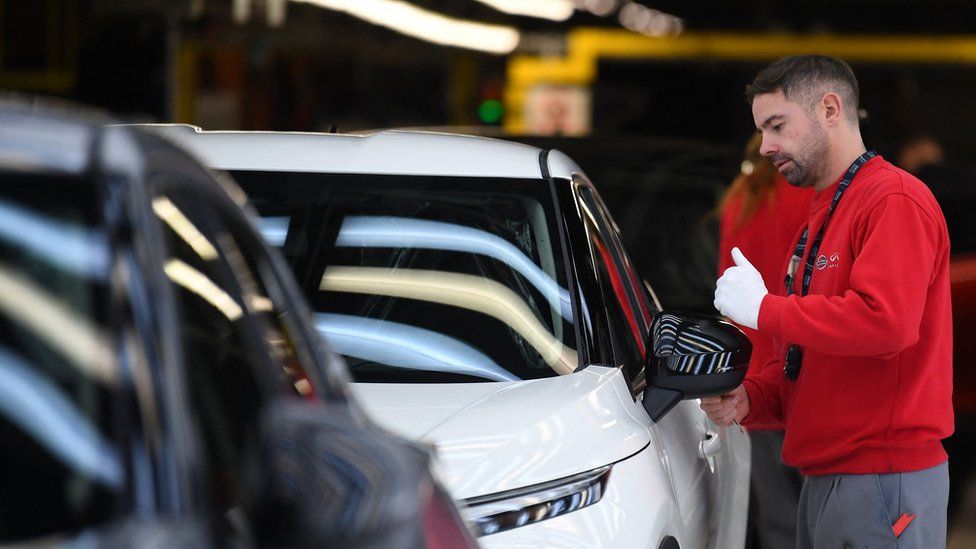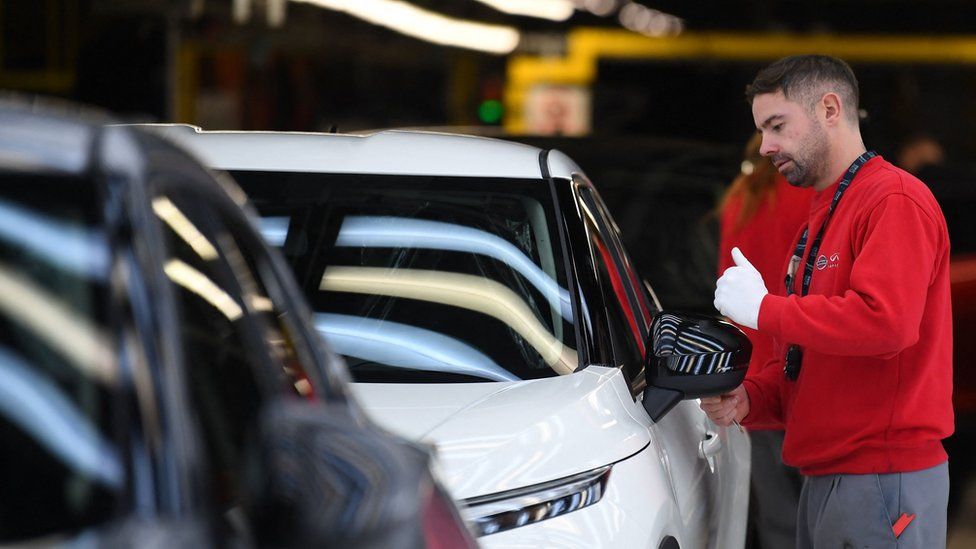 Image source, Getty Images
Image source, Getty ImagesFrom Monday, any cars the UK exports to Canada will face an additional 6% tariff, or tax.
The change comes after a post-Brexit agreement to continue EU trading terms expired without a new deal.
The new tariffs are determined by whether the UK products exported to Canada use EU parts and materials.
Limits, which had been waived, will now apply, meaning that certain exports, including cars, will not qualify for zero-tariff trade.
In 2023, 1.3% of British-built cars were exported to Canada, making it the UK's eighth largest market, according to the Society of Motor Manufacturers and Traders (SMMT), which represents the UK car industry.
The car industry has expressed its concern, especially as there appears no timetable for a resumption of discussions.
The tariff was "disappointing", said Mike Hawes from SMMT, adding that manufacturers "can only do so much" to mitigate the higher costs for consumers which will result from the tariff.
"Given Canada's importance as a market for UK automotive exports, and the detriment this tariff will have on Canadian consumers, we urge all parties to be pragmatic, to resume negotiations on an upgraded trade deal," Mr Hawes added.
These so-called "rules of origin" considerations also matter in the chemicals industry.
There is a wider disagreement between the UK and Canada over punitive tariffs on UK exports of cheese and the refusal of the UK to allow imports of Canadian hormone-treated beef. As a result of the disagreement, the trade secretary pulled the plug on wider free trade deal talks with Canada.
Trade secretary Kemi Badenoch met her Canadian counterpart at a trade summit in February, and officials continued discussions recently without a breakthrough. A UK government source said it was a shame that Canada could not see that "now, more than ever" it was vital for allies to work together.
"Sadly, Canada has shown no willingness to agree an extension," they said. "There's only so long you can bang your head against a brick wall when the other side isn't willing to find solutions." Canadian farmers have lobbied the government in Ottawa to veto the ratification of the UK's membership of the trans-Pacific trade deal, the CPTPP. But Canada does appear to be pushing ahead with UK accession. However, with both the UK and Canada in the run-up to elections, it could be some time before the spat is settled.
A spokesperson for the Department for Business and Trade said: "Canada's decision not to roll over these rules of origin will increase the cost of trade and hurt businesses on both sides of the Atlantic.
"The UK Government remains ready to work with Canada to find a solution that works for both countries, but we won't accept rowing back on the current terms".





